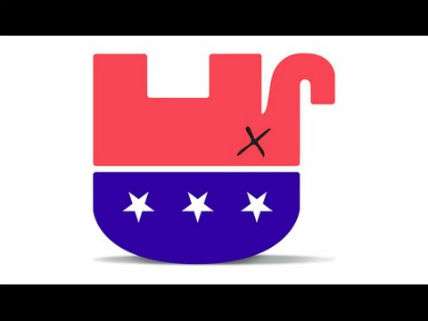The Demise of the Republican Party, and Duverger's Law
Melding socially liberal businesspeople, non-warmongering Democrats, and avowed libertarians into a new party

The Republican Party is falling apart. Last night during a townhall in Wisconsin, the three remaining Republican presidential candidates essentially refused to say that they would support whoever turns out to be the party's nominee. In addition, the spat over state legislation in Georgia and North Carolina aiming to salve the wounds of social conservatives over gay marriage went in opposite directions. In Georgia, at the behest of the business community, the Republican governor vetoed such legislation. In contrast, as a sop to social conservatives the Republican governor of North Carolina signed similar legislation into law. With the business wing of the Republican Party fighting with the party's social conservatives, can it long endure? If not, what happens next?
French sociologist Maurice Duverger formulated in 1951 the principle that "the simple-majority single-ballot [plurality or first-past-the-post rule] system favours the two-party system." Of course, Duverger's law has been challenged many times by other researchers, but others have found strong evidence that the law holds in the main. In other words, in such electoral systems citizens tend to vote strategically rather than sincerely. (Proportional voting or run-off electoral schemes tend toward multi-party systems.)
The last time the death of a major American political party—the Whigs—led to the creation of new party with the ability to capture the presidency and significant numbers of seats in Congress was in the 1850s. The Whig Party emerged in opposition to Andrew Jackson's populism in the 1830s and attracted support from the economically dynamic sectors of the U.S. economy. It died by 1854 when its northern and southern wings split over slavery. Duverger's law held sway and lots of northern Whigs went on to found the Republican Party.
It is perilous to try to compare disparate political eras, but are the current splits among Republicans enough to bring about its demise and give birth to a new party with national scope? A recent poll finds that Gary Johnson who may be the Libertarian Party's presidential candidate this year pulled double digit support from both Clinton and Trump. If the GOP shatters at its national convention in July, are there any political entrepreneurs who have the vision to replace it with a coalition of socially liberal business-oriented Republicans, non-warmongering Democrats, and the 20 percent of Americans who are self-consciously libertarian? Stay tuned.


Show Comments (174)